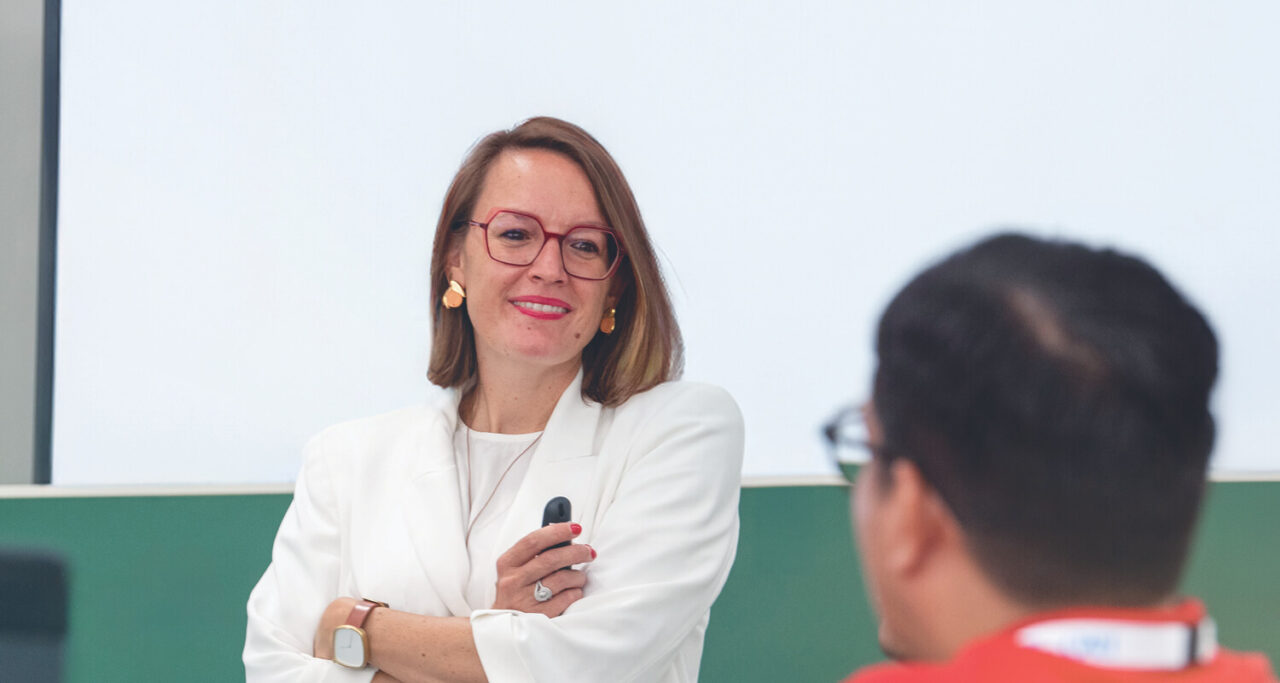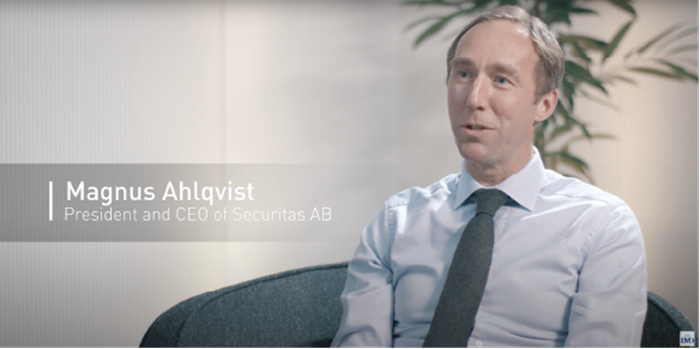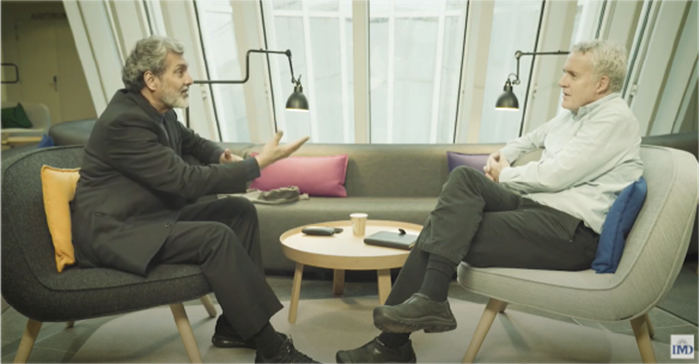


Partnering with our clients to drive strategic transformation and growth.
Catalyst
Partnering with our clients to drive strategic transformation and growth.
In today’s fast-changing markets, leaders must accelerate current growth while proactively exploring and shaping options for the future
We empower leaders in organizations to discover and implement innovative solutions to strategic questions, harnessing and developing the potential of their own teams. Through our proven approach, we help our clients unlock opportunities for growth and performance improvement while building new capabilities and setting up their teams to take full ownership of the outcomes.
Our work is grounded in IMD’s thought leadership and pedagogical excellence, delivered by our world-class faculty and the most select group of expert advisors. We have successfully worked with many of the world’s leading organizations, challenging and inspiring them towards new frontiers such as:
- Applying purpose as the lens to redefine their playing field
- Driving sustainability-led transformations
- Building new digital- and data-enabled businesses

We empower organizations to create real impact, driving change from within
Working with our clients’ teams, we leverage a unique methodology that combines organizational engagement at various levels with outside-in input and challenging questions, stimulating divergent perspectives to shape innovative solutions across different topic areas.
Harnessing an experiential approach, we encourage bold ideas and strategic thinking, thus developing organizational capabilities, and strengthening our clients’ own confidence to successfully translate strategies into results.
We co-design the journey with our clients, working together through continued dialogue to assess progress, adjust and adapt to emerging issues.
Our process harnesses organizational engagement, empowering teams at multiple levels to break silos, integrate perspectives and build ownership of the journey.
Through our thought leadership and academic rigor, we challenge traditional assumptions and stimulate innovative thinking.
We act as a partner, advisor, and provocateur, facilitating courageous conversations and team dialogues to drive mindset and behaviour change, inspiring solutions from within.
Our solutions
Our work has enabled clients to identify new avenues for revenue growth, disrupt markets, and drive organizational engagement. Clients approach us with questions on different topics that include:
• Strategy exploration, definition, and acceleration
• Future Readiness and Innovation
• Purpose discovery and cultural transformation
• Sustainability, diversity & inclusion, and ESG strategies
• Digital transformation and AI strategies
Each transformation is unique. Hence, every mandate starts with an iterative process to learn about our clients’ context and co-design a tailored journey. Our work builds on decades of experience driving change initiatives that deliver outstanding impact.

We work with executive teams through high-impact questions as a sparring partner and leverage our business and leadership development expertise to facilitate fast-paced team interventions to unlock innovative solutions.

We work with executive teams to explore pathways to address a strategic question or accelerate execution.
Combining IMD topic expertise with fast exploration and ideation cycles, teams work on opportunity definition, prototyping, experimentation, and road-mapping or on execution acceleration.

Leveraging our corporate transformation approach, IMD Pathfinder®, we enable and empower senior teams and their organizations to unlock barriers and identify compelling opportunities for growth and transformation.
Clients approach us to help them create the path forward for their organizations. This may entail finding new growth avenues while strengthening the core, accelerating business strategies, or putting purpose at the core of their strategies. Explore some of our clients’ stories below.
Browse our collection of articles and videos on strategy, purpose and transformation, reflecting our point of view and insights from our client work.


















